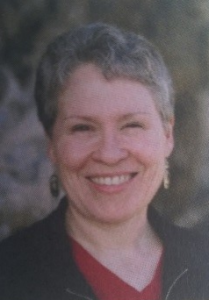Compassion appears to grow out of a worldview in which all life is an interconnected whole. When part of the whole suffers, and I’ve done all I can to relieve or alleviate that suffering, I show compassion when I don’t withdraw, but still hold a space of loving presence and kindness. The word itself means to ‘be with’ (com) another in the suffering or pain (passion)the other is experiencing. To do that, I must learn how to ‘walk in the shoes’, ‘see through the eyes’, or ‘feel from the heart’ of another, which is the core of empathy. However, I think compassion calls us beyond empathy to a place of nonjudgment, non-violence, non-attachment, and an openness of heart that recognizes we’ve done all we can do, but we can’t turn away. In her book Compassion, Christina Feldman says, ‘The ultimate Journey and skill of a human being is to discover how encompassing our hearts can be.’ That is challenging, not easy.
Growing up Roman Catholic in Iowa, USA, I learned that love and compassion were core Christian values and that to ‘offer up’ our own suffering for others in need was a good thing to do. My parents respected those in the margins, and Vatican II teachings about social justice also called for taking appropriate non-violent action to alleviate suffering and injustice whenever possible. That propelled me into the civil rights and peace movements. When I started my shamanic training years later, I learned shamanic healing practices based on compassion, not violence or retribution. At about the same time, I discovered Joan Borysenko’s book, Pocketful of Miracles, in which she provides spiritual practices that include prayers of loving kindness emerging out the Buddhist tradition – prayers I have incorporated into my own daily practice. Later, while working as a universityspirituality and multi-faith chaplain, I discovered the centrality of compassion as an important value that can call those with differing beliefs to common ground.
A few years ago, I read and signed the Charter for Compassion (www.CharterForCompassion.org), which Karen Armstrong initiated and discusses in her book, Compassion. I also attended a conference on Empathy and Compassion, sponsored by the UK Scientific and
Medical Network, and a week-long training program about compassion presented by the Institute of Compassionate Presence, USA. Those resources provided good research and guidance for living a compassionate life.
 However, my most difficult task is actually being compassionate with myself, my family, and co-workers who’ve been hurtful, loss and grief I can’t control or alleviate, and those whose behaviours seem contrary to healing and evolving our larger community and planetary systems for the good of all. I take comfort in Jennifer Berezan’s CD, In These Arms:
However, my most difficult task is actually being compassionate with myself, my family, and co-workers who’ve been hurtful, loss and grief I can’t control or alleviate, and those whose behaviours seem contrary to healing and evolving our larger community and planetary systems for the good of all. I take comfort in Jennifer Berezan’s CD, In These Arms:
‘When I’ve done all that I can and I try to do my part
Let sorrow be the doorway to an open heart…
I long to hold the whole world in these arms.
May all beings be happy … safe … free.’
– Mary Catherine Burgess

